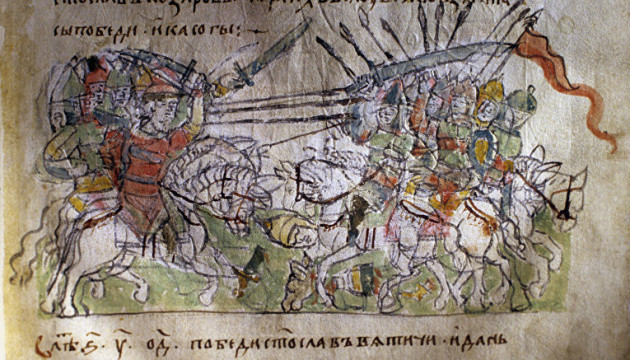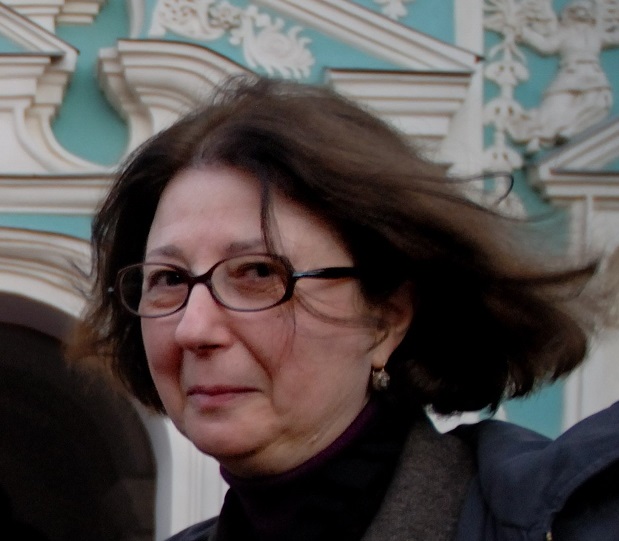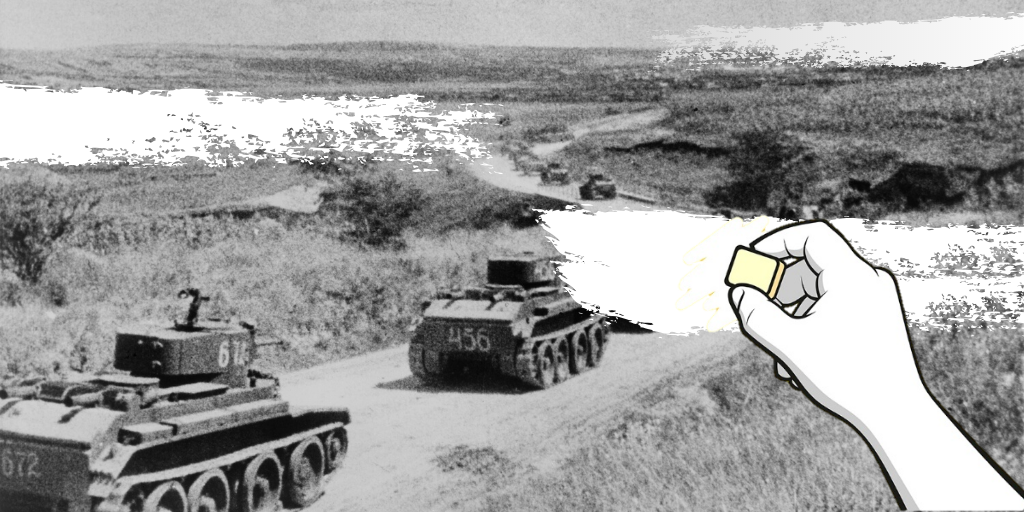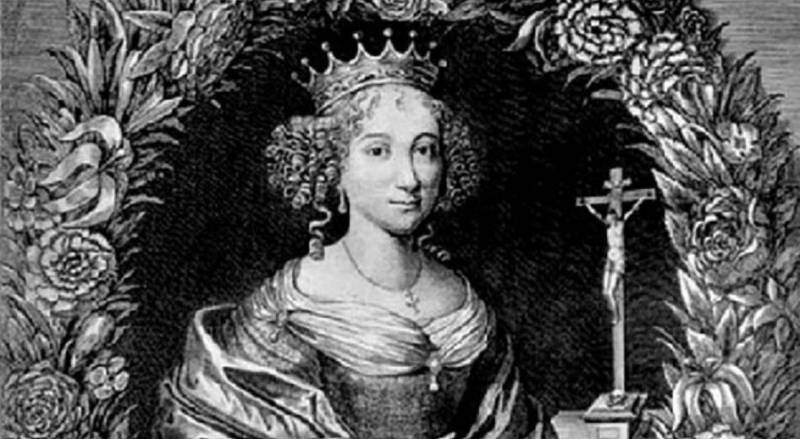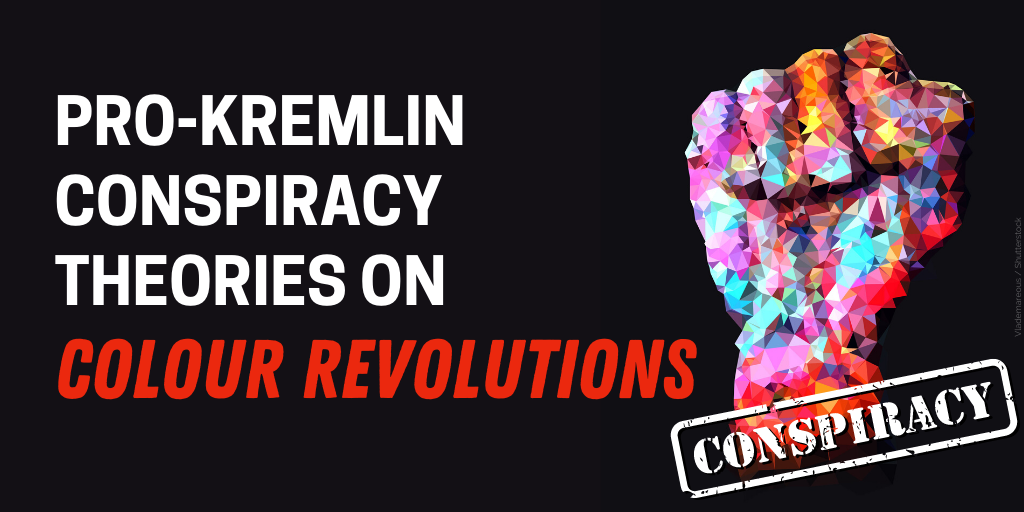"For the Kremlin, history is not something to be studied and remembered. It is something that must be controlled to justify Russia's current actions."
This apt observation belongs to Raimonda Miglinaite from the European Union's Strategic Communications Task Force, which systematically counteracts Russian disinformation attacks.
The Kremlin intensified the war for its historical past exactly 20 years ago, when Putin first delivered an address on the occasion of the 60th anniversary of the beginning of “the Great Patriotic War.”
Since then, historical policy has become one of the key areas of information warfare in the Kremlin's foreign and domestic policies. Falsification of history, manipulation of facts, concepts, and symbols have become commonplace for solving propaganda issues: from forming the identity of Russian citizens that benefits the authorities to preserving Russia's influence in the post-Soviet space, as well as in Eastern Europe and the South Caucasus.
Therefore, the "historical aggression" of modern Russia is experienced by the whole of Europe, and primarily, by Ukraine. Among all the entire arsenal of "soft power" means, historical policy is the main one by which the Kremlin is trying to justify aggression against Ukraine.
WHAT IS HISTORICAL POLICY?

Historical policy is not a Russian invention. The term comes from the German Geschichtspolitik, and was first used in Germany in the 1980s. The main idea of then-Chancellor Helmut Kohl was to change the approach to the interpretation of history, where the Nazi past and its crimes should not prevail in the historical memory of the Germans, and history should be a matter of pride, not shame. This was intended, in particular, to create him an image of a conciliator.
This approach was widely criticized by scholars, historians, politicians, and Holocaust victims, and the term itself received negative connotations as the use of history by the state or individual political forces for political reasons and attempts to convince society of the correctness of a distorted version.
The Chancellor's initiative had no chance in a democratic society, where only new scientific findings can be used to revise history. Politicians’ attempts to use history to their advantage have nothing to do with historical science, cannot be the grounds for rewriting history, and cannot enter textbooks.
THE MAIN OBJECTIVES OF THE KREMLIN'S HISTORICAL POLICY
After the collapse of the Soviet Union (which the Kremlin considers the greatest geopolitical catastrophe) and defeat in the Cold War, Russia could not put up with the status of a minor power in the international arena. The “geostrategy of revenge" became a key feature of Russia's foreign and domestic policy: a return to a multipolar world in which Russia would be the main pole, combined with the idea of "gathering lands" in the post-Soviet space.
Since the early 2000s, Vladimir Putin's regime has launched a new revision of history. And in 2009 a commission was set up to identify "attempts to falsify history to the detriment of Russia's interests", whose main task, according to the decree of the President of the Russian Federation, was
“to process and analyze information about the falsification of historical facts and events aimed to diminish the international prestige of the Russian Federation.”
The central theme of the Kremlin's historical policy at that time was World War II. In both academic and political contexts, Russia began to actively emphasize the role of the Soviet Union in World War II as a state that allegedly saved Europe from Nazis, with an emphasis on Russia's importance for European security.
And in order to create an image of Russia as a state with a thousand-year-long history and a cradle of the Orthodox faith, the Kremlin began to mention an even older historical period -- the history of the Kyivan Rus. Apart from the fact that this propaganda was actively used for domestic political purposes to consolidate the Russian people, it became a major manipulation tool in the Kremlin's aggressive policy toward Ukraine.
So why is Kyiv's heritage so important to Russia and what major historical fakes does the Kremlin use to appropriate it?
HISTORICAL FAKE №1: "RUSSIA IS THE ONLY SUCCESSOR OF KYIVAN RUS"

This Russian propaganda myth is debunked by historical sources, which show that the ethnic definition of the word "Russian" in the sense of "Ukrainian" has been continuously applied for many centuries.
As etymologist Hryhoriy Pivtorak notes in his study,
"Ukrainians in the Great Duchy of Lithuania called themselves Rusyns, and the Lviv city books from 1599 even refer to the 'Rus nation' (Natio Ruthenica), due to unfavorable political circumstances and after the disintegration of Kyivan Rus and the decline of the Galicia-Volyn principality, the term 'Rus' did not become a political attribution on Ukrainian territory."
During the totalitarian communist regime, the version of Kyivan Rus as a "cradle of three fraternal peoples" -- Russians, Ukrainians, and Belarusians -- was especially widespread in society. That was how the official Soviet ideology explained the emergence of the East Slavic nationalities and their languages.
In defense of this concept, they primarily cited the cognates "Rus" and "Russian," emphasizing the priority right of Russians to be called the heirs of Kyivan Rus. Also, Russian historians often claim that the name "Kyivan Rus" is a historical manipulation, because Kyiv did not immediately become part of this state and later lost the status of the capital city.
Further, Russian historical propaganda claims that only Russia is the embodiment of Rus' original cultural and religious heritage, unlike Ukraine and Belarus, which allegedly lost their identity after being seized by other states and falling under the influence of the Catholic and Uniate churches.
Russia also revives the myth of the "Old Russian state" and the "Old Russian nation," which arose under the Stalinist regime. According to Soviet scholars, the rapprochement and merging of many East Slavic tribes during the Kyivan Rus formed an ethnic and linguistic unity -- the Old Russian people, who had a common territory, language, common cultural and psychological features. In his speeches, Vladimir Putin very often appeals to the fact that Kyivan Rus or the Old Russian state and Russia is one concept.
But Kyiv, which falls outside the sphere of influence of Russia's statehood, undermines Russia's image as a country with a thousand-year-long history and a cradle of Orthodoxy. So the Kremlin is doing everything to "return" Ukraine to the "Russian world."
Well-known Ukrainian historian Leonid Zaliznyak claims that:
"Moscow's rights to the historical and cultural heritage of princely Kyiv are no bigger and no less than the rights of Madrid, Lisbon, Paris, and Bucharest to the history and culture of Latin Rome. As the Roman peoples inherited certain heritage of Roman culture, so the Belarusians and Russians absorbed into their ethno-defining complex certain elements of the culture of princely Kyiv. However, neither were the former direct creators of the Latin culture of Rome, nor are the latter indirectly related to the creation of the culture of Kyivan Rus."
HISTORICAL FAKE №2: "UKRAINIANS ARE RUSSIANS"
This thesis of Putin does not hold water, because historians have repeatedly proven that the Russian and Ukrainian nations were formed separately, with different indigenous populations and in different territories.
[editorialright]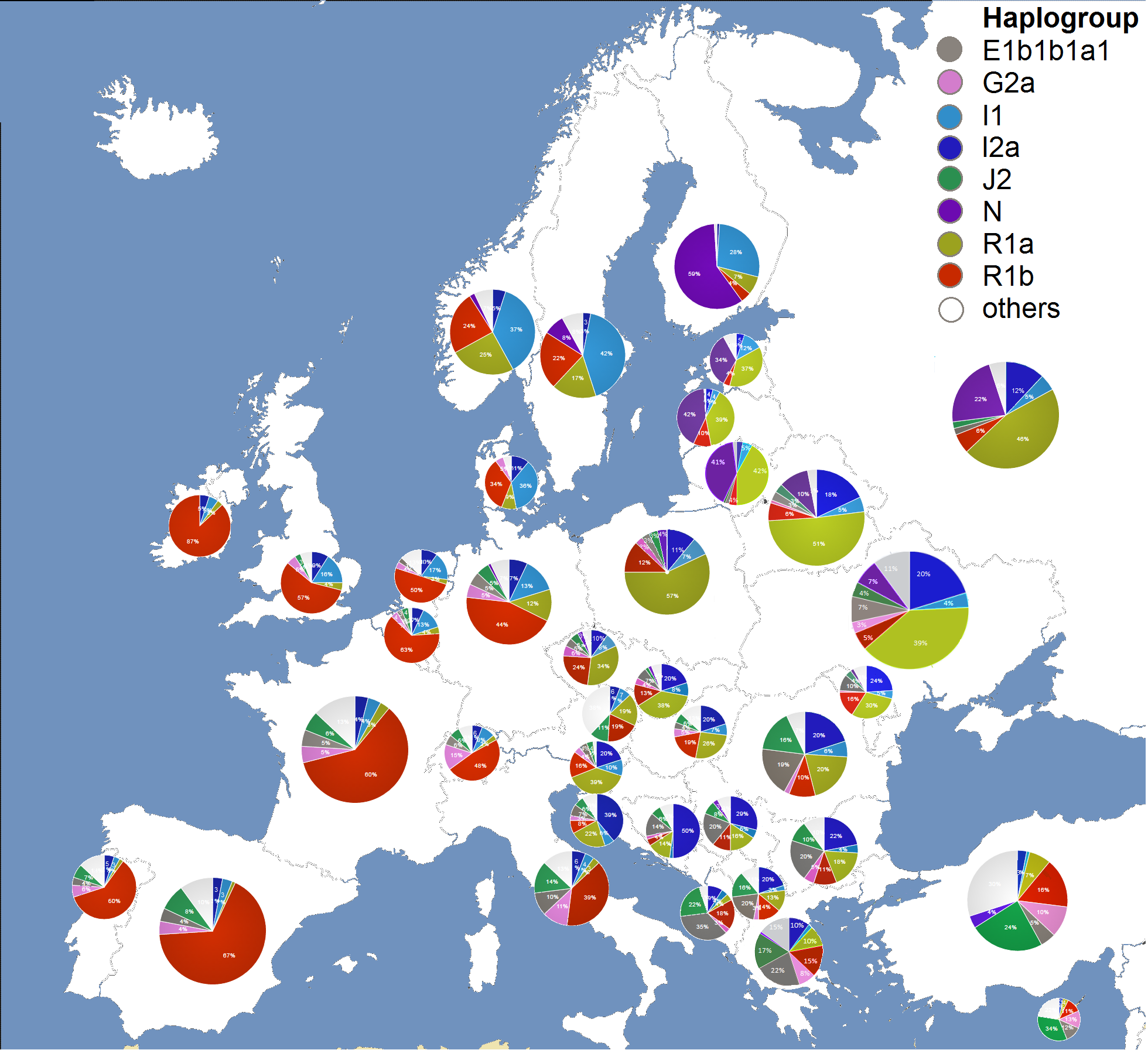 Regarding the genetic makeup of Russians, Belarusians, and Ukrainians, it would be appropriate to compare them to the Portuguese, Spaniards, and the French. Despite similarities in lineage, each nation has a distinct genetic composition, as seen on this chart of the distribution of Y-DNA haplogroups in the populations of Europe.[/editorialright]In 2013, a publication by Russian scholars claimed that Russians from northern Russia were "Finno-Ugric-Tatars" by origin, not "Eastern Slavs," and had nothing to do with Ukrainians and Belarusians. Only representatives of a few populations of central European Russia have something in common with populations of Central and Eastern Europe. That is, even genetically Ukrainians and Russians are different ethnic groups.
Regarding the genetic makeup of Russians, Belarusians, and Ukrainians, it would be appropriate to compare them to the Portuguese, Spaniards, and the French. Despite similarities in lineage, each nation has a distinct genetic composition, as seen on this chart of the distribution of Y-DNA haplogroups in the populations of Europe.[/editorialright]In 2013, a publication by Russian scholars claimed that Russians from northern Russia were "Finno-Ugric-Tatars" by origin, not "Eastern Slavs," and had nothing to do with Ukrainians and Belarusians. Only representatives of a few populations of central European Russia have something in common with populations of Central and Eastern Europe. That is, even genetically Ukrainians and Russians are different ethnic groups.
Back in the Russian Empire, historians formed an ideology supported by pseudo-scientific studies, which treated all Eastern Slavs as a "united Russian people" and began its history with Kyivan Rus, which they said was the oldest Russian state.
In Soviet historiography, the Russian, Belarusian, and Ukrainian peoples were separated and had their own rights to language, history, and culture. But that did not prevent Soviet historians from continuing the imperial tradition of encroaching on the historical heritage of Kyivan Rus.
The Kremlin’s modern historical policy continues the tradition of tsarist Russia. This is evidenced by the statements of Putin, who claims that Russia now has to "deal" with the consequences of Lenin's state-building. He has repeatedly stated that Kyivan Rus is the core of the Russian Empire, emphasizing the supposedly identical cultural, historical, and ethnic conceptions of Russians and Ukrainians and alleging that Russians and Ukrainians are “one people.”
At a press conference in December 2017, Putin said:
"Our historical, spiritual and other roots entitle me to say that basically, we are one and the same people.”
At the same press conference, he stated:
“There was no difference at all between Russians and Ukrainians. Ukraine became part of the Russian empire in 1645. Russia incorporated three of its regions: Kyiv, Chernihiv, and today’s Zhytomyr. As part of the Russian empire, Ukraine received more territory as a result of different events, such as the Russian-Turkish wars and later on World War II. However, in 1922—1924 the Bolsheviks decided for some reason that all territories adjacent to Ukraine’s historical part should become a new republic – Ukraine. All Black Sea regions became part of it. After WWII it incorporated Western regions.”
Such statements of the Russian president vividly highlight the two main mythologies of the Kremlin:
- there seem to be no special grounds for the existence of Ukraine and Belarus as independent states;
- most of Ukraine's territories were allegedly unjustifiably annexed by it.
In March 2020, Putin signed amendments to the law on citizenship of the Russian Federation. In particular, they envisage that citizens of Belarus and Ukraine who are fluent in Russian will be recognized as native speakers of Russian and will no longer be required to attend an interview to prove their competence in the Russian language. This not only greatly simplifies the mass passportization of all "Russians" living abroad, but also "proves" the idea that separate [Belarusian and Ukrainian] nations do not exist, as opposed to the existence of the common "Russian world."
HISTORICAL FAKE NO.3: "CRIMEA IS THE CRADLE OF RUSSIAN CHRISTIANITY AND RUSSIA’S HOLY PLACE"
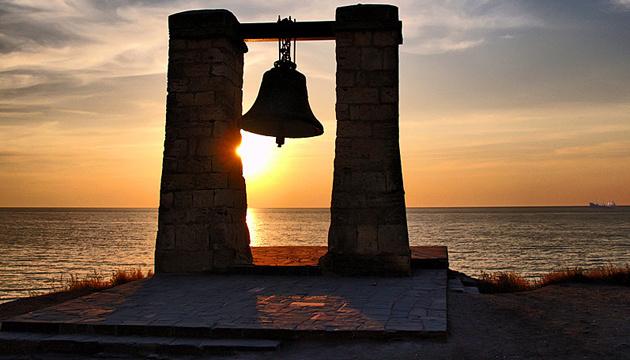
One of the Kyivan Rus' primary historical sources, the "The Tale of the Bygone Years" chronicle, presents three versions of Prince Volodymyr’s baptism: Chersonesos, Kyiv, or Vasyliv (Vasylkiv). Despite the ongoing debate among scholars, most historians believe that Volodymyr was baptized before his Crimean campaign -- in 987 or in January 988 in Kyiv or near it.
Thus, despite the Kremlin's claims, Crimea has nothing to do with the "cradle of baptism" or the "sanctuary of Russian Christianity."
Nevertheless, firstly, the Kremlin must reiterate that Russia is part of a thousand-year-long history of Christianity because the Orthodox faith is also one of the fundamental components of the "Russian world" concept.
Secondly, to justify the attempt to annex Crimea, the Kremlin is actively using historical fakes, which aim primarily to convince the world, Ukrainians, and Russians themselves that Crimea was originally Russian and that the transfer of Crimea to Ukraine in 1954 was illegal and resulted from Nikita Khrushchev’s voluntaristic decision.
This myth is easily refuted by the fact that Khrushchev was not all-powerful at that time, and the transfer of Crimea was a collegial decision of the Soviet leadership.
But the Kremlin's propaganda goes further: it introduces sacral metaphors and justifies the occupation of Crimea by saying that it is a holy place for Russians because their "spiritual bonds" are there and "Russian" Prince Volodymyr was baptized there.
The figure of Prince Volodymyr the Great as the baptizer of Rus became important in Russian historiography during the times of the Russian Empire. The first great celebration dedicated to the baptism of Rus was held at the end of the 19th century. After the occupation of Crimea, this day regained the status of an important religious and state holiday for Russia.
In December 2014, in the Presidential Address to the Federal Assembly of the Russian Federation, Putin stated that Crimea “has invaluable civilizational and even sacral importance for Russia" and was "the cradle of Russian spirituality."
In his "Crimean speech,” Putin reiterated,
"Everything in Crimea speaks of our shared history and pride. This is the location of ancient Chersonesus, where Prince Volodymyr was baptized. This is also Sevastopol – a legendary city with an outstanding history, a fortress that serves as the birthplace of Russia’s Black Sea Fleet. Each of these places is dear to our hearts, symbolizing Russian military glory and outstanding valor.”
A year later, at a meeting with young scholars and history teachers, Putin reiterated that:
"It was in Crimea, in the ancient city of Chersonesus that Prince Volodymyr was baptized before bringing Christianity to Rus. The primary baptismal font of Russia is there. And Chersonesus -- what is it? This is Sevastopol. Can you imagine the connection between the spiritual source and the state component, having in mind the struggle for this place: for Crimea in general, for Sevastopol, for Chersonesus? In fact, the Russian people have been fighting for centuries to stand firm near their historic spiritual font.”

With these expressions, Putin seeks to support the statements about Crimea and, in particular, Chersonesus as the "primary baptism font" and "spiritual source" of Russia, attributing the "spiritual feat" of Volodymyr the Great exclusively to the Russian people. Even a monument to Volodymyr the Great was erected in Moscow in 2016 on a stone brought from Crimea to once again revive the pseudo-historical "spiritual value of Crimea for Russia."
TRUE HISTORY DOES NOT BENEFIT RUSSIA
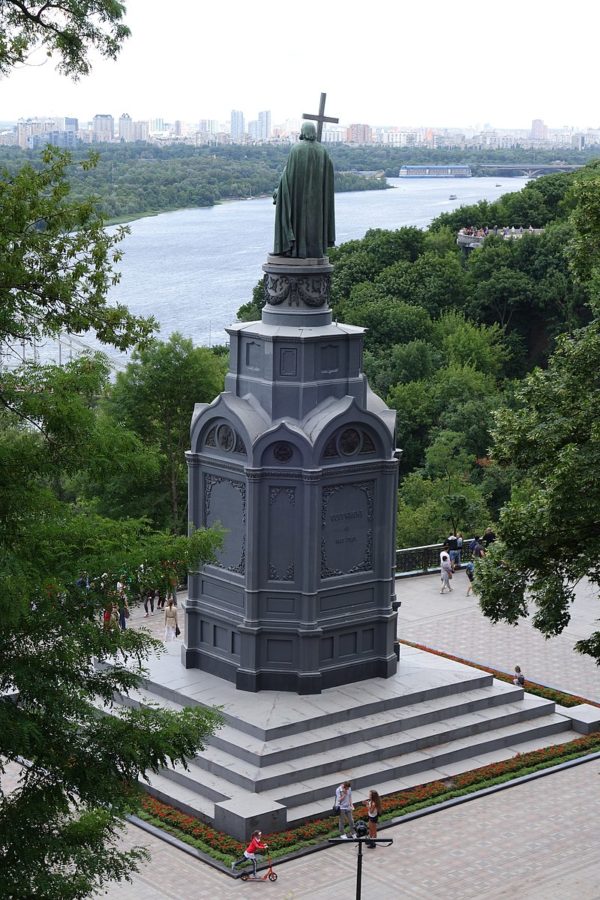
The "Russian World" is based on falsified history, manipulation, and disinformation attacks. The Kremlin's desire to privatize the common historical past, literature, Slavism, Orthodoxy, and culture is only an attempt to maintain the illusion of non-existent greatness, which is completely destroyed by Ukraine's withdrawal from Russian influence.
As Zbigniew Brzezinski wrote in his book The Great Chessboard,
“Without Ukraine, Russia ceases to be a Eurasian empire. Russia without Ukraine can still strive for imperial status, but it would then become a predominantly Asian imperial state and more distant from Europe."
That is why Ukraine has a significant place in the Kremlin's historical policy and is so important to the Kremlin. That is why there is so much Ukraine in Russian news. That is why Russia uses the slightest pretext to negate the development of Ukraine as an important European state.
Hence the Russian claim to history, heroes, symbols, and meanings: without them, the success of the policy of restoring the status of a superpower is impossible, and Russia is just a late successor to the Golden Horde.
Related:
- How Moscow hijacked the history of Kyivan Rus
- The population of Kyivan Rus spoke Old Ukrainian, says historian
- The mystery of how Kyivan Rus shaped early Christianity in Norway
- Anna of Kyiv, the French Queen from Kyivan Rus
- New book tells of sacred relics of Kyivan Rus appropriated by Russia
- Putin’s ‘appropriation’ of medieval Ukrainian princess reflects more than historical arrogance
- Ukrainian conflict is between ‘heirs of Kyivan Rus’ and ‘heirs of Golden Horde’
- “Moscow’s appropriation of Ukrainian history not limited to Queen Anna Yaroslavna” and other neglected Russian stories

